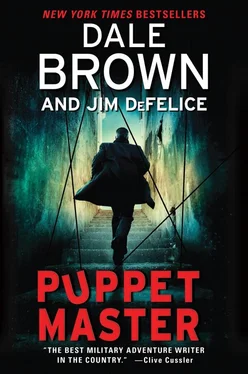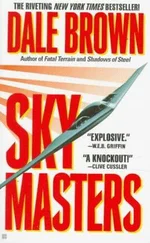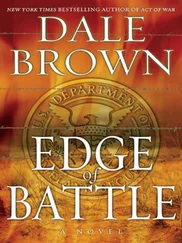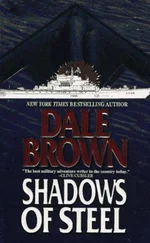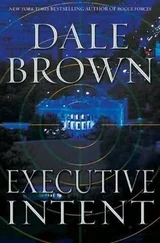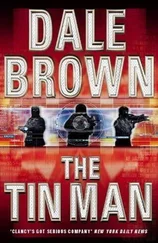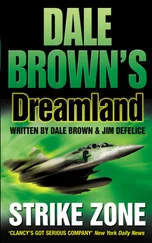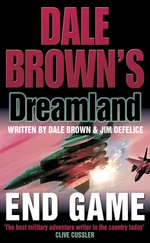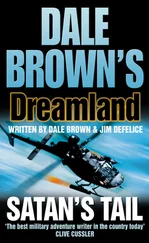“To her, I would suspect.” She smiled. “If you ever need anything, I’m always here.”
Donetsk, occupied Ukraine
Tolevi had Fodor drop him off several blocks from the address he’d been given. The old man was dubious; it was not a good part of town, even before the war, and aside from that it was a frequent target of the government’s mortaring. But Tolevi insisted, and in the end the old man reluctantly let him go.
“I’ll see you before I leave Donetsk,” Tolevi assured him. “And we will solve the world’s problems.”
“That will take more wine than I own,” said Fodor sadly. “Take care, young man. Take care.”
The streets were dark, lit only by the dim light cast from nearby windows. There wasn’t much of that: more than half of the buildings Tolevi passed were gone.
Tolevi walked to the south first, away from the address, always on guard against being followed. The air felt damp and cold; a storm must be coming on, he thought. With so many buildings gone, he had to guess at the block segment where the butcher shop would be. He came around two blocks east, walking with a quick, businesslike pace toward his destination.
He was very conscious of the fact that he had no weapon to defend himself with. Ukraine was not known for crime; if anything, before the war Donetsk was far safer than Boston, itself a relatively safe city. But war and deprivation made people desperate.
I can take care of myself.
The butcher’s shop was dark. The storefront, which had probably been plate glass not too long ago, was covered in plywood, but the door at the side was glass and intact. Tolevi knocked on it, pushing his head to the glass and trying to see if there was any light inside. But the place appeared empty.
He stepped back to look at the apartments above. No light came from any of the windows. The sky was overcast, and without light from anywhere nearby, it was difficult to see, but to Tolevi it looked as if the right corner of the top floor appeared jagged, torn off by some prehistoric monster — or, more likely, a mortar shell from government lines.
He knocked again, this time much louder. Still nothing.
All right, then. I’ll come back in the day.
Tolevi cupped his hands over his face and peered inside, trying to see if the place was simply abandoned. But he saw only shadows, and even these weren’t more than indiscriminate clouds.
He stepped back, reluctant to leave. Finally he turned in the direction Fodor had taken bringing him here.
Tolevi was a long way from the hotel, but there was no alternative to walking. He turned his collar up against the cold and hunched forward, hands in pockets.
“You! Stop!” shouted a voice in Ukrainian behind him.
Tolevi kept walking.
“I said stop!” repeated the voice. It was deep, masculine, at least middle-aged, maybe older.
No. Stopping is never a good idea, Tolevi thought. Stop and be killed, or robbed at least. Walk and at worst they think you crazy, and who messes with a crazy man in a war zone?
He pushed his hands deeper into his pockets, hoping it looked like he had a gun.
“I said halt!” This time the man behind him used English.
Surprised, Tolevi stopped. The man flipped on a flashlight, casting a long oval ahead that silhouetted Tolevi on the street.
“Turn around or I shoot,” said the man.
Tolevi turned. Three men were standing a few meters away. The one in the middle had a Kalashnikov.
“Show your hands,” said the man, still in English.
“What are you saying?” asked Tolevi in Ukrainian, though of course he understood. “I speak Ukrainian and Russian. Take your pick.”
“Hands up,” repeated the man in Ukrainian.
The man on his right walked up to Tolevi. He was a few inches shorter, and much thinner. Pointing at Tolevi’s sides, he indicated he was going to frisk him; Tolevi widened his stance and submitted.
“What were you doing at the shop?” asked the man with the rifle when the search was over. He played the flashlight’s beam across Tolevi’s face.
“Looking for meat.”
“At this hour?”
“I was looking to make some stew,” said Tolevi.
Still holding the rifle, his inquisitor handed the flashlight to the man on his left, then took out a cell phone. He looked at the face of the phone for a moment.
Give me the answer, thought Tolevi. Ask me who is it for.
But instead, the man asked again why he would go to a butcher shop in the middle of the night.
“I heard sometimes it is open,” answered Tolevi. “If you want meat.”
“You don’t look familiar.”
“I’m a visitor. Trying to find food for a friend.”
“You will come with us,” said the man. He slipped the phone back into his pocket.
“I don’t want any trouble,” said Tolevi.
“You will come with us.” He pointed the gun at Tolevi’s face. “Now.”
Boston — roughly the same time
Johnny Givens stopped at the foot of the steps to his house on St. Charles Street and took a deep breath.
“I’m home,” he said to no one in particular. “Home.”
He put his hand on the rail and went awkwardly up the steps. There were so many things he had to get used to — his new legs, his mechanical heart, his new status as a “medically furloughed/soon to be retired on full disability” former government worker.
The last would be the hardest, he was sure.
Givens’s home was a duplex in Fields Corner West, an area described by the real estate brokers as “up and coming,” though some of the residents might take issue. It certainly had the requisite mixed population — Vietnamese as well as Hispanic, black, and younger white. But it was also the neighborhood where Guinness had first been served, which made it quintessential old-school Boston. Had Givens been in a different kind of mood, he might have gone to the very bar, the Blarney Stone, which was only a short walk from, or a longish crawl to, his house.
But he wasn’t in a drinking mood. Stepping into his apartment was like stepping into a different life — an old one that he had left not a week but eons ago.
It wasn’t just that the place smelled stuffy, or that here and there a fine layer of dust had settled. The dimensions of the rooms seemed to have changed. The walls looked darker than he remembered, the furniture shabbier. His bed, unmade since the morning he left, looked different, smaller and angled in the room in a way that was unfamiliar. Nothing was exactly the same, and when he went from the hallway between the bedroom to the kitchen, he tripped over the wooden threshold. He caught himself on the doorway, but even as he righted himself he felt sheer panic, his emotions free-falling.
What if I fall here and can’t get up? What if my heart stops? What if the legs become unattached or stop working?
What what what…
Irrational fears, all of them. If anything, he was stronger than he’d been — he’d always had a flawed heart, even if he hadn’t known it; now he had one that was perfect, as the doctor who’d plugged into its magnetic sensors had told him with some glee before his release.
His artificial legs were several times stronger than flesh and bone. The drugs had pumped his muscles to a peak he hadn’t experienced since high school, and maybe not even then. He was a bionic man, better than before.
Yet, not complete. Missing. A man missing who he was, who he had been.
Johnny straightened himself and walked to the refrigerator to take stock. The milk was bad, but there was an unopened bottle of cola on the top shelf. He took it out and, in a sudden fit of tidiness, poured it into a glass before sitting down at the kitchen table to drink it.
Читать дальше
